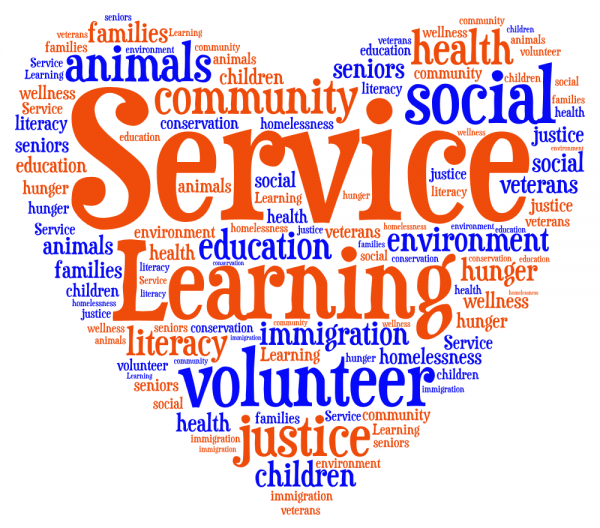Often called “Service Learning”, community engagement pedagogies are ones that combine learning goals and community service in ways that can enhance both student growth and the common good.
As it is said by the National Service Learning Clearinghouse, it is “a teaching and learning strategy that integrates meaningful community service with instruction and reflection to enrich the learning experience, teach civic responsibility, and strengthen communities.” Or, to quote Vanderbilt University’s Janet S. Eyler (winner of the 2003 Thomas Ehrlich Faculty Award for Service Learning) and Dwight E. Giles, Jr., it is “a form of experiential education where learning occurs through a cycle of action and reflection as students… seek to achieve real objectives for the community and deeper understanding and skills for themselves. In the process, students link personal and social development with academic and cognitive development… experience enhances understanding; understanding leads to more effective action.”
Typically, community engagement is integrated into a course or series of courses by way of a project that has both learning and community action goals. This project is designed via collaboration between faculty and community partners, such as non-governmental organizations or government agencies. The project asks students to apply course content to community-based activities. This gives students experiential opportunities to learn in real world contexts and develop skills of community engagement, while providing community partners opportunities to address significant needs. Vanderbilt University’s Sharon Shields has argued that service learning is “one of the most significant teaching methodologies gaining momentum on many campuses.” Indeed, when done well, teaching through community engagement benefits students, faculty, communities, and institutions of higher education. Here are some of the benefits that education researchers and practitioners have associated with community engaged teaching.
Learning Outcomes
– Positive impact on students’ academic learning
– Improves students’ ability to apply what they have learned in “the real world”
– Positive impact on academic outcomes such as demonstrated complexity of understanding, problem analysis, problem-solving, critical thinking, and cognitive development
– Improved ability to understand complexity and ambiguity
Personal Outcomes
– Greater sense of personal efficacy, personal identity, spiritual growth, and moral development
– Greater interpersonal development, particularly the ability to work well with others, and build leadership and communication skills
Social Outcomes
– Reduced stereotypes and greater inter-cultural understanding
– Improved social responsibility and citizenship skills
– Greater involvement in community service after graduation
Career Development
– Connections with professionals and community members for learning and career opportunities
– Greater academic learning, leadership skills, and personal efficacy can lead to greater opportunity
Relationship with the Institution
– Stronger relationships with faculty
– Greater satisfaction with college
– Improved graduation rates

